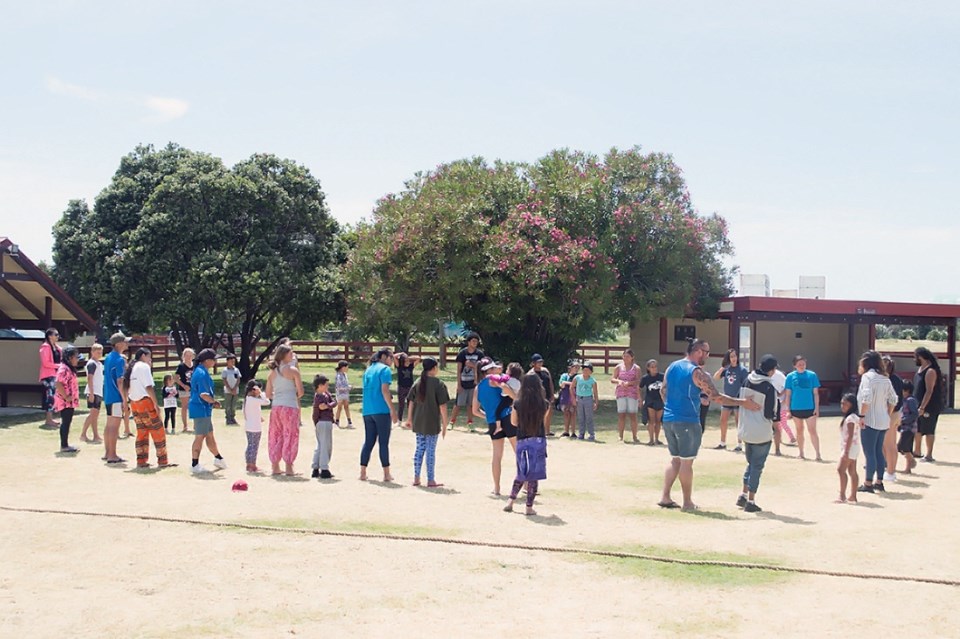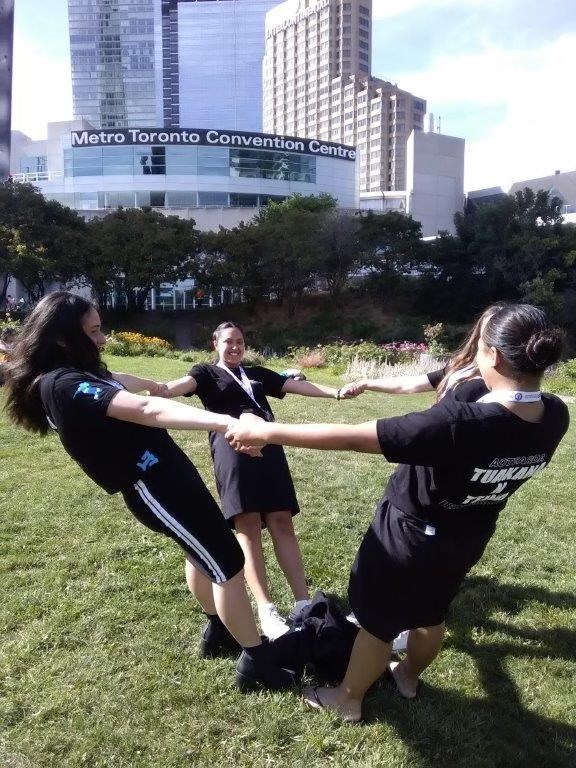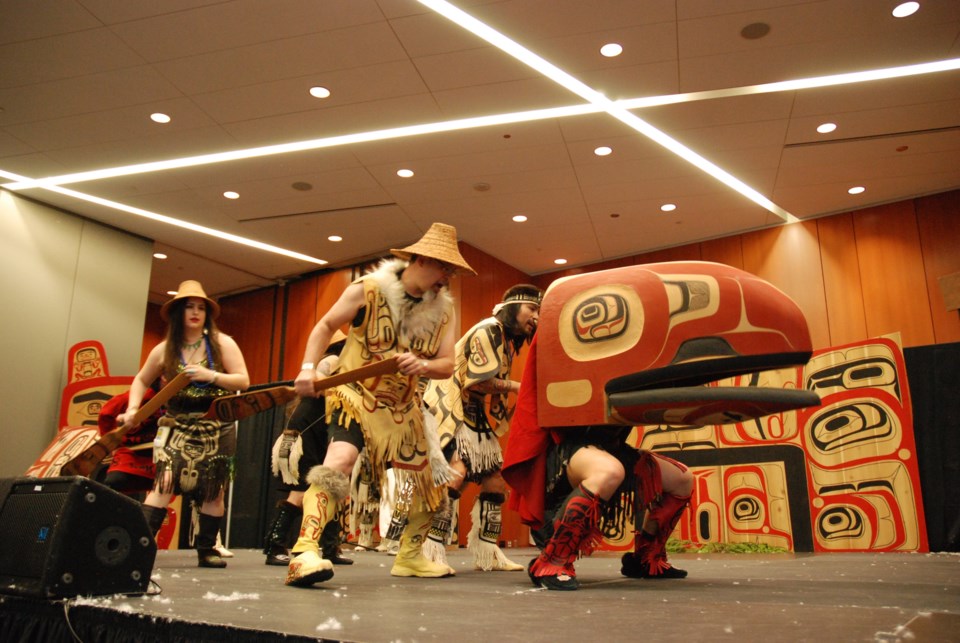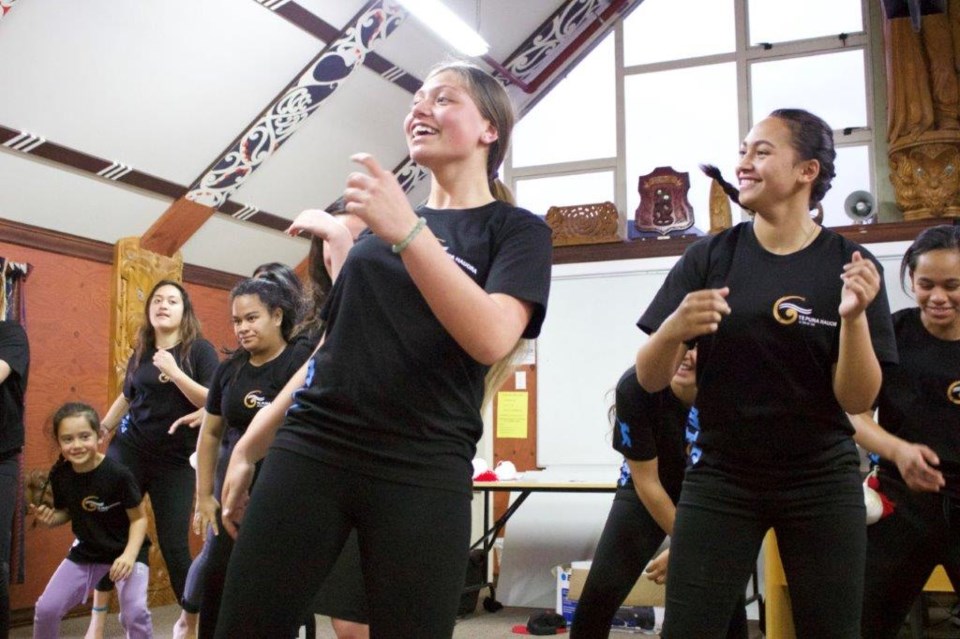For the young dancers in the Tuakana and Teina Leadership Academy Group, a trip from New Zealand to New Westminster is about far more than just performance.
The Maori group is coming to town for the 13th annual Coastal Dance Festival, running from Feb. 25 to March 1 at the Anvil Centre in New West and the Museum of Anthropology at UBC. Tuakana and Teina, or TNT for short, is one of 14 performance groups to take to the stage for the annual celebration of Indigenous stories, song and dance.
Managing director Cindy Mokomoko, on the phone from Tauranga on New Zealand’s North Island, expects the trip to be a formative one for the nine young dancers – three boys and six girls, ages 10 to 16 - she’s bringing to the festival.
“I would expect to see leadership development and growth,” she says.

“There is so much poverty here in this country, amongst Maori in particular, and there are so many social problems, and our leadership group is about helping young people to have hope in the future.
“And it’s also about opening and widening their minds to global things – global Indigenous things, and what’s happening here, and what we can see there. It’s just about helping them to think further than what their actual situation may be.”
The development of leadership is at the heart of the work Tuakana and Teina does through an annual youth camp for children and youth aged four to 16. It’s named for the traditional Maori concept of tuakana-teina, which focuses on the older person teaching and supporting the younger, and the idea that the older person can also learn from the younger.
TNT’s work is grounded in four Maori cultural values: whanaungatanga, or relationships; manaakitanga, meaning self-care and care for others; tikanga and kawa, two interconnected concepts that Mokomoko summarizes as “doing things right and doing the right thing”; and tino rangatiratanga, or empowerment and self-determination.
All those values are taught to leadership camp participants through dance class.
The dancers became a touring performance group thanks to Mokomoko’s travels presenting at various conferences. At first, the dancers were a backdrop to her presentations; now, they’re the main attraction.
“My thoughts have always been, if you’re going to be talking about young people, let them go and let them talk for themselves,” Mokomoko says. “I have been to too many conferences, even a whole conference about youth, where everybody’s up there talking about them but there’s no youth there.”
It was a previous international trip, when her group presented at an Indigenous conference in Toronto in 2017, that brought Mokomoko to the attention of the Coastal Dance Festival.

“Our room was packed,” she recalls. “People were very interested, and that’s how we’re coming this year.”
For the upcoming festival, the TNT group has a 20-minute performance planned, beginning with a greeting to the people whose homeland they are visiting. That will be followed by a waiata, or song, and then the main presentation – which will be introduced by one of the young people to explain the significance of what is to follow.
They’ll start off with a prayer, or karakia, followed by a medley of three or four action songs – including a poi dance that warriors used to use to help with dexterity and eye coordination (a poi is a round, soft ball on a string); a haka, a men’s traditional war dance, which will feature the three male dancers with the girls providing support in the background; and a contemporary dance to a contemporary Maori song. A second karakia will be offered with sign language accompaniment, “so that it’s universal and open to everybody,” Mokomoko explains.
She’s looking forward not just to sharing her own group’s culture with a North American audience but also to experiencing the culture and stories of the other performers.
“I think it’s going to be a really good opportunity for our young people to meet and talk with other Indigenous people over there,” she says, noting that there are certain shared commonalities with Indigenous cultures around the globe – confiscation of land, loss of language, loss of culture.
Based on her previous Toronto trip, for which she travelled with a group of 14 teenage girls, Mokomoko is expecting the experience will be life-changing for the young performers.
On that previous trip, she says, there were some teens who were struggling. Some were facing some serious social problems; others were getting near the end of their school days with no clear idea what they wanted to do with their lives; another was struggling with her identity, being Maori but not having been brought up in the culture.
But now?
“They are thriving, the whole team,” she says proudly.
The ones who didn’t know what they wanted to do with their lives? Two of them are in their second year of nursing training. Two who were struggling came back with a new lease on life and went to college, where they’re still studying.
“The one who had the cultural identity crisis is now much more settled inside herself and is quite sure about who she is,” Mokomoko says, noting the young woman is now in tertiary (post-secondary) studies.
Mokomoko feels sure that the same kind of growth will happen for this year’s crew as well.
“I don’t think that they have any idea, in all honesty, about how extended their minds are going to be, and the experiences,” she says.
What with six performances and two workshops in the eight days they’ll be in Canada, Mokomoko and her team won’t have a lot of time for sightseeing. She’s hoping they’ll be able to catch a few local sights – maybe Capilano Suspension Bridge – and she knows the girls will want to go shopping.
And Mokomoko does have one other goal for her dancers, based on one of her own personal highlights from a previous trip to Vancouver.
“One of the greatest things for me was seeing all the squirrels in the parks because we only see them in picture books,” she says with a laugh. “I want these ones to see squirrels.”
CHECK IT OUT
WHAT: Coastal Dance Festival
WHERE: Anvil Centre, 777 Columbia St., New Westminster, and Museum of Anthropology, University of British Columbia
WHO: Featuring 14 Indigenous performance groups from B.C., Alaska, the Yukon, Nunavut and New Zealand, including the Squamish-based dance company Spakwus Slolem, the multi-general Coast Salish Tsatsu Stalquayu (Coastal Wolf Pack), the Haida company Rainbow Creek Dancers, and Arctic Song, a collective of Inuit musicians from across Canada’s Arctic.
WHEN: Tuesday, Feb. 25 to Sunday, March 1. Anvil Centre schedule includes school group performances on Feb. 26 at 10:30 a.m. and Feb. 27 at 1 p.m.; signature evening performance on Friday, Feb. 28 at 7:30 p.m.; and Festival Stage performances on Saturday, Feb. 29 and Sunday, March 1 (at 1, 2 and 3 p.m. both days).
TICKETS: Festival stage performances are by donation. Signature evening tickets are $30 regular, or $25 for students and seniors. Buy through www.ticketsnw.ca.
INFO: For full schedule info and tickets, see damelahamid.ca.




